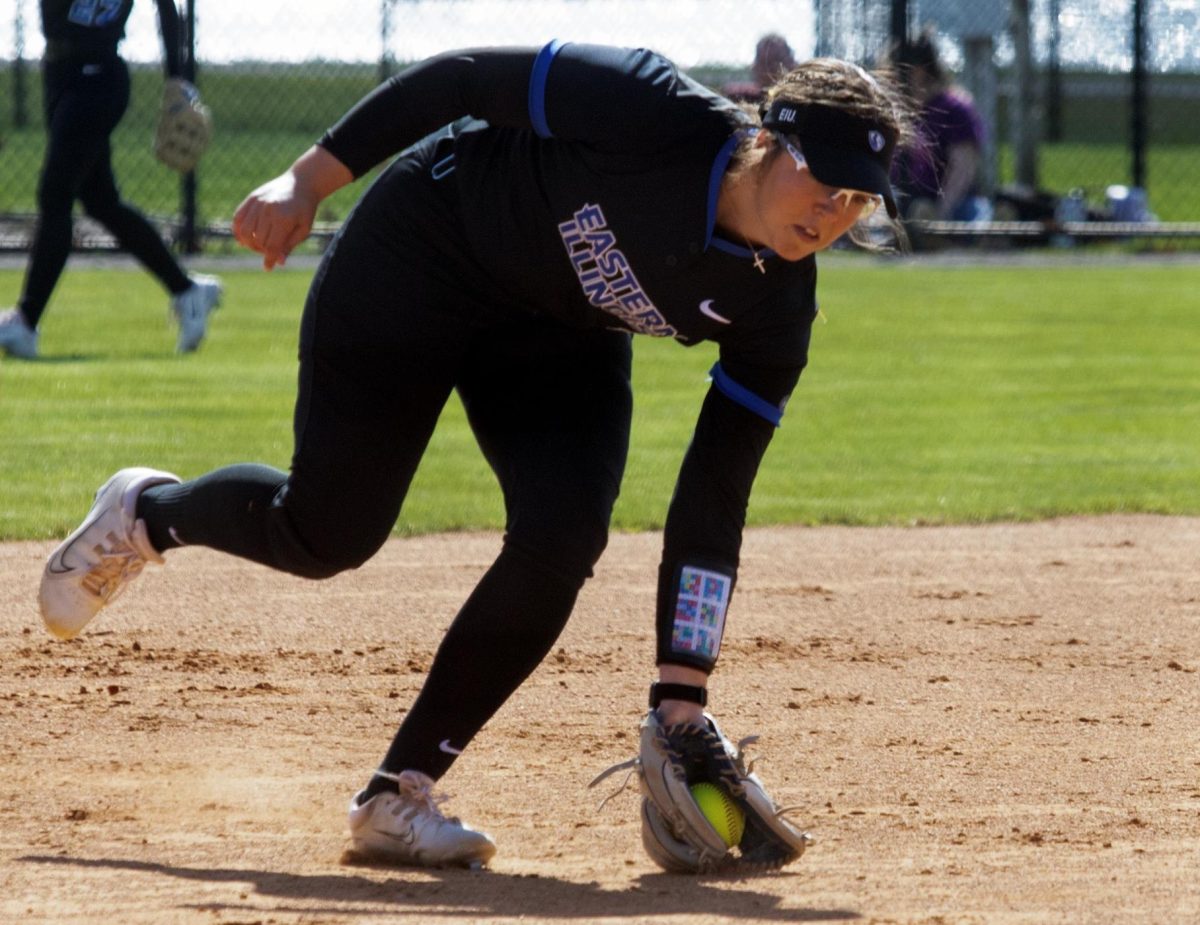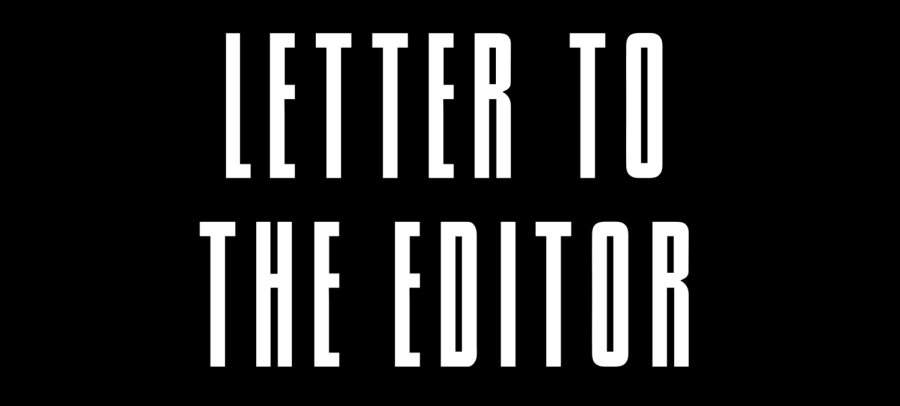EIU’s courtyard in front of the library is deemed a free speech area, and as such, protesters are welcome to speak their minds on campus in this area.
However, March 7, a certain protester armed with a sign condemning many groups of people caused a large crowd to form around him. His message was controversial to the students on campus, and many felt threatened, unsafe and offended.
I showed up to the scene about an hour after the crowd had first formed. People with pride flags, signs and even a man dressed as Jesus had gathered to dispute the protestor’s hateful claims.
I managed to get up front. The man’s sign condemned many groups, but he focused on one in particular: the LGBTQ+ community.
I am a gay and transgender man living on the campus of EIU.
My friend group warns each other about religious fundamentalists whenever they arrive on campus so that we can avoid them. Most are harmless to us. They only display their messages and talk to people who come up to them first.
But as queer people in the United States, we have learned to be afraid of them. We are not willing to take the chance that one of the people who come to campus to spout homophobia will insult us, condemn us or, God forbid, attack us. Several of us have been victims of hurled insults on the street or familial rejection because of who we are.
When I heard this man was yelling insults and loudly professing that gays will burn in hell, I rushed over.
At one point, I managed to get his attention. Without knowing anything about me, he called me a “lesbo” and professed that I would never be a real man. He held up a ball and announced that he had balls and that I never would.
In a less public setting, I would have left, but the people around me made me feel safe enough to stay and talk to the other people there. I talked to people who vehemently disagreed with him and people who agreed with him.
No matter how they felt about his views, all of these people shared a common belief: the way this man chose to protest was excessive, unnecessary and gave Christianity a bad name.
Some of them were afraid that the situation would escalate. One person expressed a fear of being killed by people like him on campus.
“What if he kills me? Then we’re one down. I would be the second queer Choctaw kid to get killed in one month,” he told me.
Many people had a sense of humor about the situation.
“I can’t tell if I want to laugh or cry at him,” one attendee said. “I keep telling him ‘you don’t know what’s in my pants,’ and he doesn’t like that,” a woman remarked.
One man joked about how he had kissed the man dressed as Jesus in front of the protester.
“I will never get cancer ‘cause I kissed a guy dressed as Jesus,” he said.
Speaking of the man dressed as Jesus, he also had a lot to say about the protester’s claims.
“Jesus loves everybody. Don’t matter your race, your religion, your gender, your sexuality. I love you,” the man said.
I talked to two Christian men who told me that they agreed with some of his points but not the way that he had chosen to present his opinions. One of them simply remarked that he “could be a bit nicer.” He also told me that while he held the same view about queer people sinning, he felt that they were entitled to make their own decisions in life and that he believes they shouldn’t be condemned by others.
The other Christian man I spoke to had a very open discussion with me about religion, sin and queerness. I did my best to be as respectful as possible despite our different worldviews, and in return, he was polite, kind and understanding.
He asked me genuine questions about my identity. By the end of the conversation, we came to an agreement that though we may not understand each other, we are entitled to do and believe what makes us happy, so long as it doesn’t hurt others, whether that is worshiping God or changing our gender.
I appreciated this conversation greatly. This is the kind of conversation that we should be having—a respectful exchange of ideas and an attempt at understanding each other. The protester had been doing the opposite: slinging slurs and insults, condemning others based on hatred and telling them that they deserved to die.
Yes, he said that. He said it multiple times, in fact.
I cannot be the only one who found this entire situation unacceptable. While I understand that this area of campus is designated for free speech and protests are explicitly allowed, the aggressiveness and hatred of this man made many people, including myself, highly uncomfortable and borderline unsafe.
After witnessing this event, I feel that it’s time that we as a student body and as an institution ask ourselves: To what extent should we allow this on campus? At what point does free speech become unprotected hate speech?
It is difficult to feel safe as a queer person on campus when we openly allow people like this to come into the area where we live, where we go to school, where we are told we are protected and tell us that we deserve to die.
Jacob Kimsey can be reached at jwkimsey@eiu.edu.
Anyone can submit writing to the publication at deneic@gmail.com. Upon receiving, the publication has authority to edit or remove content from the submitted work.
















![[Thumbnail Edition] Senior Foward Macy McGlone, getsw the ball and gets the point during the first half of the game aginst Western Illinois University,, Eastern Illinois University Lost to Western Illinois University Thursday March 6 20205, 78-75 EIU lost making it the end of their season](https://www.dailyeasternnews.com/wp-content/uploads/2025/03/WBB_OVC_03_O-1-e1743361637111-1200x614.jpg)













![[thumbnail edition] Assistant Coach of the Linebackers, Rodman Noel talking to the linebackers about their positions at O'Brien Field on the Eastern Illinois University campus, Charleston Ill.](https://www.dailyeasternnews.com/wp-content/uploads/2025/04/FB_24_O-1-e1744671213207-1200x609.jpg)
![[THUMBNAIL EDITION] (From left to right) Head football coach Chris Wilkerson works with his son student assistant coach Peyton Wilkerson at football practice at O'Brien Field on the Eastern Illinois University campus on Thursday.](https://www.dailyeasternnews.com/wp-content/uploads/2025/04/FB_25_O-1-e1744234837107-1200x596.jpg)











































